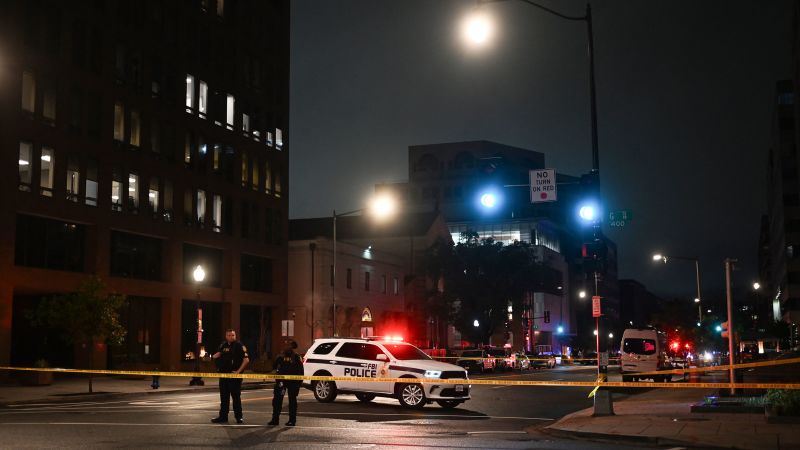In a deeply troubling event that has captured national and international attention, the Department of Justice is investigating a brutal shooting incident in Washington, D.C., that resulted in the tragic deaths of two staffers from the Israeli Embassy. Authorities are treating the incident as both an act of terrorism and a hate crime. The investigation delves into not just the shooter’s motives but also the broader implications of such violence, particularly as it pertains to rising tensions surrounding global geopolitical issues.
The alleged perpetrator of this vicious attack, Elias Rodriguez, who is 31 years old and hails from Chicago, faces multiple federal murder charges. Some of these charges have the potential to be punishable by death. Prosecutors allege that Rodriguez, after attending an event at the Capital Jewish Museum, opened fire on a young couple—Sarah Milgrim and Yaron Lischinsky—and shouted “Free Palestine!” during his arrest. This phrase has been viewed as a clear indication of an ideological motivation behind the heinous attack.
On his first court appearance, Rodriguez refrained from entering a plea and was ordered to remain in custody while investigations take place. Prosecutor Jeff Nestler described the case as intricate, involving “a large amount of evidence and a large number of witnesses,” indicating a complex timeline that investigators are currently working to piece together. The shooting incident occurred shortly after Rodriguez had declared his intention to attend an event at the museum, which was aimed at uniting Jewish young professionals and the diplomatic community.
Court documents reveal crucial details about the firearms used in the attack. The 9mm handgun found at the crime scene was purchased by Rodriguez in Illinois in March 2020, and he declared it as a firearm in his checked baggage when flying to Washington, D.C. The FBI is actively examining Rodriguez’s online activity, including a manifesto reportedly linked to him, to establish a clearer picture of his motivations and associations. Rodriguez has purportedly mentioned in police statements that he was inspired by a US airman who died while protesting outside the Israeli Embassy.
The tragic victims of this brutal shooting, identified as Sarah Milgrim, 26, and Yaron Lischinsky, 30, were promising individuals contributing to their diplomatic roles. Milgrim, a recent graduate from the University of Kansas and a master’s degree holder from American University, had been working at the embassy since shortly after the October 7 Hamas attacks. She coordinated various travel arrangements for groups visiting Israel. Meanwhile, Lischinsky, originally from Germany, had set his sights on a career in diplomacy.
Friends and colleagues describe Milgrim as an earnest volunteer, actively contributing to the betterment of community relations between Palestinians and Israelis. Lischinsky, on the other hand, was remembered for his intellect and generosity, highlighting the tremendous loss felt by their respective communities following this abhorrent act of violence. The couple’s romantic relationship was also spotlighted, with reports indicating that Lischinsky had recently proposed to Milgrim.
Former President Donald Trump was among the prominent figures expressing sorrow over the tragedy. He specifically condemned the attack as an act of antisemitism and offered his condolences to the bereaved families. Other world leaders and organizations echoed these sentiments, including Israeli Prime Minister Benjamin Netanyahu, who shared his sympathies with the families of the victims and condemned any form of violence targeting individuals because of their identity.
As investigations progress, Rodriguez remains incarcerated pending future court hearings. The case is drawing attention to issues surrounding hate crimes, gun violence, and geopolitical tensions that often morph into domestic strife. The FBI and local police departments have ramped up security measures in response to community concerns, indicating the ripple effect of such violence on broader societal safety.
Ultimately, the Capital Jewish Museum is making arrangements to reopen in the aftermath of the tragedy, as authorities reinforce their commitment to protecting community members, particularly those from vulnerable backgrounds. It’s imperative that the community confronts these challenges, not only to seek justice for the victims but also to work towards preventing such horrific acts from occurring in the future.



